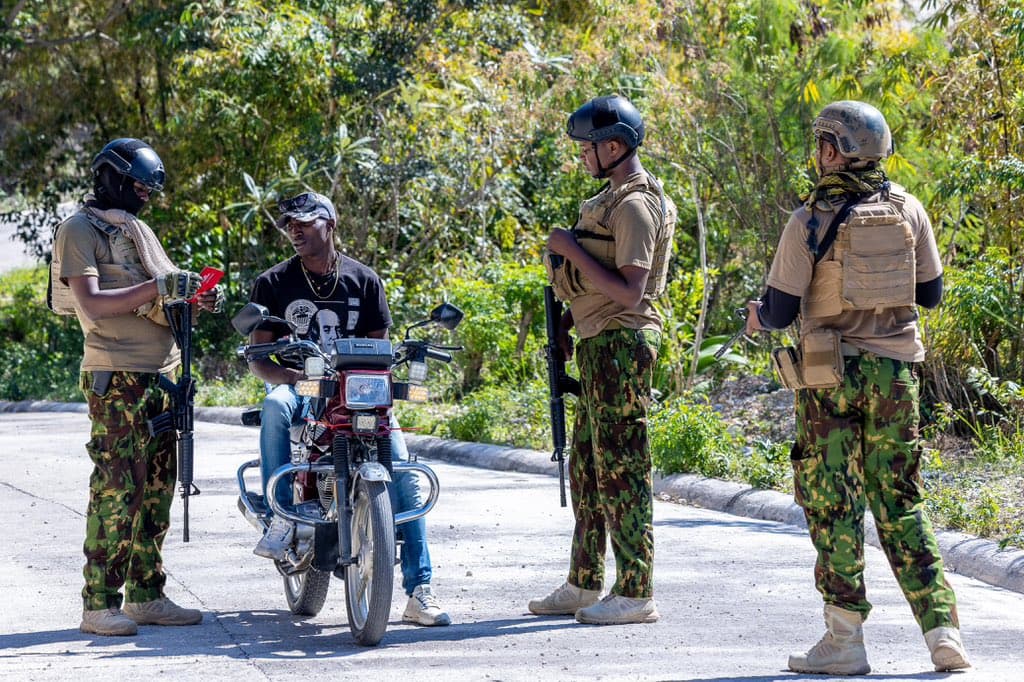We're loading the full news article for you. This includes the article content, images, author information, and related articles.
DAP-K leader Eugene Wamalwa proposes redeploying Kenyan officers returning from Haiti to address escalating gang violence within Kenya, following a UN resolution to strengthen anti-gang efforts in the Caribbean nation.

DAP-K party leader Eugene Wamalwa has called for the redeployment of Kenyan police officers returning from the United Nations-backed mission in Haiti to tackle the growing issue of gang violence across Kenya. Wamalwa made the suggestion in a statement posted on his official X account on Thursday, October 2, 2025, at 8:27 AM EAT.
Wamalwa's remarks follow the recent adoption of a UN resolution that transitions the Kenyan-led Multinational Security Support (MSS) mission in Haiti to the Multinational Gang Suppression Mission (GSF). This shift, according to Wamalwa, aims to bolster efforts against organised crime in the Caribbean nation with an expanded force and mandate.
The UN resolution marks a significant change in the international approach to Haiti's security challenges. Wamalwa welcomed the transition, stating, “We welcome United Nations resolution approving the transition from the failed, ill-equipped and under-resourced Kenyan-led MSS mission to Haiti, to the new Multinational Gang suppression Mission (GSF) with an expanded force and mandate.” This new mandate is expected to provide more robust tools and resources for combating gang activities.
Eugene Wamalwa, as the leader of the DAP-K party, represents a political voice advocating for a strategic use of national security assets. The Kenyan government, particularly the Ministry of Interior and National Administration, would be the primary implementer of any such redeployment. The National Police Service would be directly involved in the operational aspects. Citizens affected by gang violence in Kenya are key stakeholders, as are international partners involved in the Haiti mission.
The proposed redeployment carries several implications. While it could bolster local efforts against gang violence, it also raises questions about the readiness and specific training of officers returning from an international mission for domestic law enforcement. There could be logistical challenges in integrating these officers into local police structures and ensuring their effectiveness in a different operational environment. Additionally, the public perception of using forces trained for an international mission to address domestic issues would need careful management.
Key details remain unclear, including the exact timeline for the return of Kenyan officers from Haiti, the specific number of officers involved, and the financial implications of their redeployment within Kenya. The government's official stance on Wamalwa's proposal has not yet been articulated. The specific areas in Kenya where gang violence is most prevalent and would benefit from such a redeployment also need to be identified.
Observers will be watching for an official response from the Kenyan government regarding Wamalwa's proposal. Further details on the UN's new GSF mission in Haiti, including its operational scope and the role of Kenyan forces, will also be important. Domestically, any policy shifts or announcements related to combating gang violence in Kenya, particularly those involving the redeployment of security personnel, will be closely monitored.
This development is related to ongoing discussions about Kenya's role in international peacekeeping and security missions, as well as persistent concerns about internal security challenges posed by organised criminal gangs across various parts of the country. The effectiveness of current domestic strategies against gang violence will likely be re-evaluated in light of such proposals.
Keep the conversation in one place—threads here stay linked to the story and in the forums.
Sign in to start a discussion
Start a conversation about this story and keep it linked here.
Other hot threads
E-sports and Gaming Community in Kenya
Active 9 months ago
The Role of Technology in Modern Agriculture (AgriTech)
Active 9 months ago
Popular Recreational Activities Across Counties
Active 9 months ago
Investing in Youth Sports Development Programs
Active 9 months ago